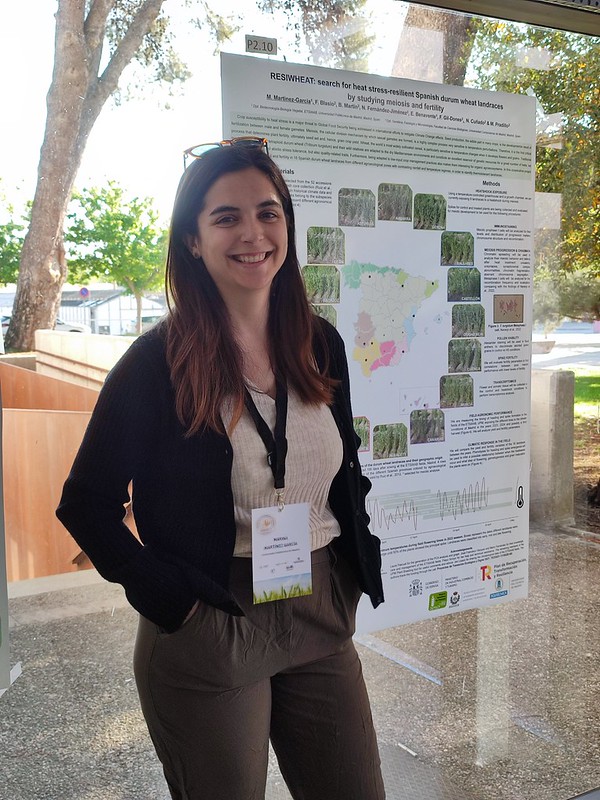Search for heat stress-resilient durum wheat Spanish landraces by studying meiosis and fertility
PI: Mónica Pradillo, PhD (Facultad de CC Biológicas, Universidad Complutense de Madrid)
Proyectos Estratégicos Orientados a la Transición Ecológica y a la Transición
Digital 2021
TED2021-131852B-I00
The environment has a profound impact on plant growth. In recent years, we have been experiencing more frequent and severe heat waves. This susceptibility to heat stress of crop plants is a major threat to Global Food Security that needs to be addressed as part of the international efforts to restrict and mitigate the effect of Climate Change. The seed is the edible part of most staple crops, like cereals and
legumes. In these sexually reproducing plants, seeds are the developmental result of fertilization between male and female gametes. Meiosis, the cellular division mechanism by which sexual gametes are formed, is therefore the first critical process in a row that determine plant fertility and ultimately seed set and, hence, the yield of grain crops. It is a highly complex program very sensitive to perturbations. Wheat is the most widely cultivated cereal in the world and it is particularly sensitive to temperature changes when it developes flowers and grains. Modern wheat cultivars belong primarily to two polyploid species, hexaploid bread wheat (Triticum aestivum) and tetraploid durum-type wheat (T. turgidum), the latter being better adapted to the dry Mediterranean climate than bread wheat. Traditional landraces of cultivated wheat and their wild relatives are an excellent reservoir of genetic resources for a huge amount of traits of agronomic interest, especially for resistances to biotic and abiotic stresses which are at the heart of the
development of sustainable agriculture. These landraces not only possess increased adaptability, but also quality-related traits. Additionally, the old local varieties, characterized by being adapted to low-input crop management practices, are now becoming of increasing interest for the organic farming agroecosystems specialized on traditional food markets.
The main aim of this project will be the analysis of meiosis and fertility in durum wheat Spanish landraces from different agroecological zones with contrasting rainfall and temperature regimes to identify thermotolerant landraces. In this project, we combine classical and innovative methodologies to understand the influence of high temperature on meiosis and hence, fertility and yield components. Additionally, we are monitoring greenhouse environmental conditions in the real time by installing state-of-the-art remote sensing tools to optimize the plant growing conditions.
We plan to uncover the potential of already adapted Iberian varieties to temperature shifts that can be used by breeding companies for better and Climate-Change-adapted commercial varieties. The short, medium and long-term accumulation of knowledge generated by this project will help to identify novel elite durum wheat varieties. This unlocking of wheat natural variation will lead to the production, via
classical plant breeding, of superior varieties with favorable agronomic traits such as increased yield.



